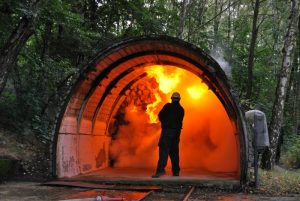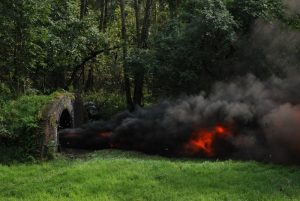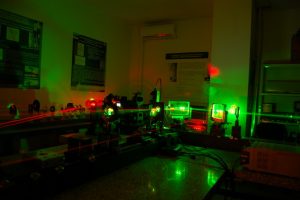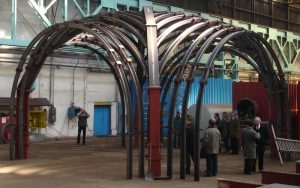Głowny Instytut Górnictwa (GIG)


The Central Mining Institute (Główny Instytut Górnictwa – GIG) is a major Polish research institution. Driven by technical and human potential, its extensive research capabilities enable it to appropriately respond to the needs of the mineral mining industry, as well as other sectors of the economy. The Institute is committed to exerting a positive impact on the relationship between the industry, its people, and the natural environment.
One of the guiding principles of GIG is to pursue multiple paths towards sustainable development. As far as the mineral mining industry is concerned, this involves ensuring its economic efficiency to improve living standards for both employees and local communities, while keeping in mind the occupational safety and the condition of the environment, and also the availability of resources.


Since its beginning, the key issue that the Institute has been committed to investigate is occupational safety and technological progress in mining, especially in hard-coal mines. Indeed, GIG consistently ventures into new areas of research and, in so doing, it responds to the challenges that the modern-day Polish and European economies are facing. Some of the problems that these challenges relate to include the development of clean coal technologies, the geological storage of carbon dioxide, the generation of hydrogen by means of underground coal gasification, the reuse of methane derived from coal mines and water mining, high-technology for the sustainable development of mining areas, and research into social change within industrial regions. All these are new developments, so there is yet much to be done, hence the interest that it sparks both across Europe and worldwide.
Clean coal technologies (CCT) represent, by far, the top priority for GIG, as both the future of Polish coal and the energy security of our country are conditional on their development. CCT is an umbrella term for low-environmental-impact industrial technologies that involve coal, be they in the mining, energy or chemical industries. A state-of-the-art research complex, the Clean Coal Technologies Centre, was launched this year with a view to gaining new insights into these technologies and other fields of interest. In investigating the above mentioned research area, we also keep in touch with developments related to climate change and clean energy. For several years now, the Institute has been deeply involved in developing a safe, underground, coal gasification technology. Once implemented, as well as facilitating better use of Polish coalfield resources in the future, it will also help achieve a very clean energy product. Other projects focus on reducing methane emissions attributable to the working of coal fields. This is of importance for occupational safety and environmental protection, and also for reusing this gas for energy. Clean geothermal energy, derived from mining water pumped out to the surface, is also a subject of major interest to GIG’s research teams.
Significantly, the proposed technological solutions are meant to take into account the social factor, with the emphasis on the social acceptability of the individual technologies. For this reason, in keeping with the principle of sustainable development, GIG laid out an original methodology to assess the eco-efficiency of technologies. By developing technologies that qualify as sustainable, the Institute feeds into the EU policy of implementing the Environmental Technologies Action Plan. These are only the core areas of our effort, since it would take a great deal of time to discuss all areas of interest which include land protection, waste management, water management, air protection, noise prevention, and many more. What is significant is that, in the entirety of its research policies and activities, the Institute is committed to delivering something new and innovative, and also to keeping in touch with the needs of the markets in which our clients operate. It is they who set the bar high for science, as the problems of the modern-day industry that the Institute is trying to solve are becoming more and more difficult and complex.


Department of Extraction Technologies and Mining Support
The department is focused on development, design and maintenance of different types of mining support and underground construction. Our main activities are as follows:
- design and selection of mining supports such as: steel yielding supports, rockbolts, concrete and shotcrete lining,
- design and selection of powered roof supports for site specific geological and mining conditions,
- design of mining supports for mining gallery junctions ,
- design of steel arch supports and accessories,
- design liquidation of mine workings connected with the surface (mine shafts, adits etc.),
- development of technical and technological projects in terms of mining support repair,
- research of rock mass and rocks parameters surrounding mining excavations,
- research of mining support technical conditions,
- research work in terms of underground construction (mine shafts, roadways, adits etc.),
- technical inspection of vertical mine shafts by use of climbing techniques,
- defining the conditions of effective and safe maintenance of longwall and roadway excavations,
- assessment of the effective and economical coal deposit extraction with a longwall or alternative system,
- stress-strength analysis of mining supports and their components,
- development of specialised computer software,
- numerical modelling of rock mass using FLAC, FLAC3D, UDEC, Phase, RS3,
- numerical modeling of buildings, machines and equipment used in mining using COSMOS/M, ANSYS,
- development of research equipment and software,
- development of innovative solutions for mining,
- training in the terms of mining support design, use and maintenance.
